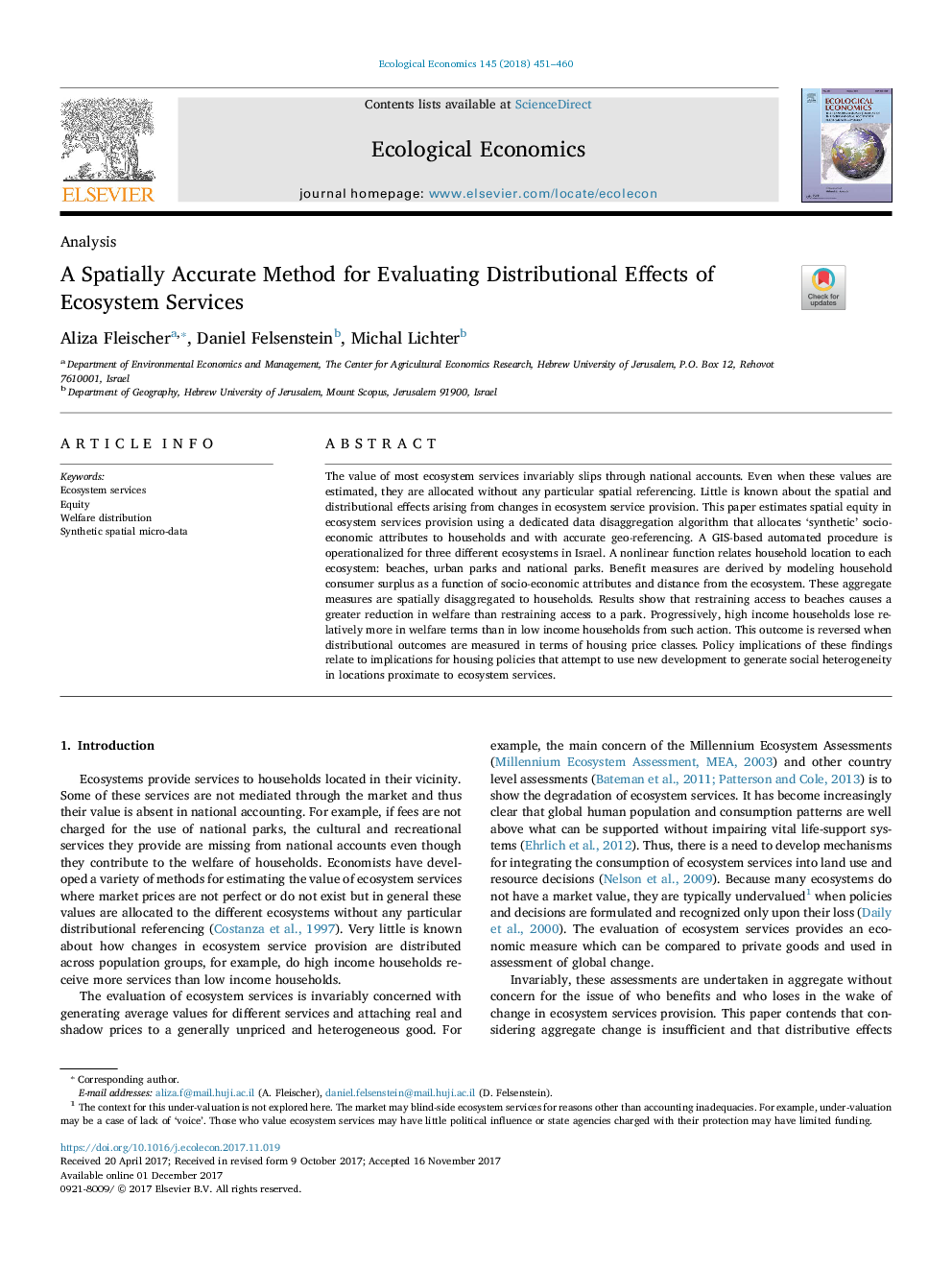ترجمه فارسی عنوان مقاله
یک روش دقیق برای ارزیابی اثرات توزیع خدمات اکوسیستم
عنوان انگلیسی
A Spatially Accurate Method for Evaluating Distributional Effects of Ecosystem Services
| کد مقاله | سال انتشار | تعداد صفحات مقاله انگلیسی |
|---|---|---|
| 99096 | 2018 | 10 صفحه PDF |
منبع

Publisher : Elsevier - Science Direct (الزویر - ساینس دایرکت)
Journal : Ecological Economics, Volume 145, March 2018, Pages 451-460
ترجمه کلمات کلیدی
خدمات محیط زیستی، انصاف، توزیع رفاه، میکرو داده های فضایی مصنوعی،
کلمات کلیدی انگلیسی
Ecosystem services; Equity; Welfare distribution; Synthetic spatial micro-data;

